Why do preschoolers suddenly scream, cry, or throw things when things don’t go their way? Why do they run away from group activities, refuse to share, or ignore adult instructions? Are these outbursts simply part of typical development, or could they be early signs of behavioural disorders in preschoolers? How can parents and teachers tell the difference between everyday emotional struggles and more serious behavioural issues?
Preschooler behaviour often mirrors their emotional state and cognitive development. By understanding these behaviours—such as tantrums, refusal, or aggression—we can respond with patience instead of punishment. This not only helps reduce everyday conflicts but also builds social and emotional skills. It also allows educators and parents to identify potential behavioural disorders in preschoolers, which is key to offering early support. Addressing behaviour is more than correction—it’s an opportunity to guide healthy emotional growth and long-term resilience.
Preschooler behaviour can feel confusing, even overwhelming—but behind every action is a message waiting to be understood. Keep reading to learn what drives their actions, what’s normal, and how to respond with confidence and care.

What are Challenging Behaviors in Preschool?
Understanding preschooler behaviour is not always easy. Children aged 3 to 5 are still learning how to manage impulses, follow rules, and express their emotions appropriately. At times, their feelings overflow in ways that appear disruptive, aggressive, or unpredictable. These are often described as challenging behaviours, and while they may seem problematic, they are usually a regular part of development. However, in some cases, they may signal early signs of behavioural disorders in preschoolers. Recognizing the difference is the first step toward offering meaningful support rather than reacting with frustration or punishment.
Let’s explore the most common forms of challenging preschooler behaviour, what each one might indicate, and how adults can respond with empathy and guidance.
Biting
Biting is one of the most concerning preschooler behaviours for both teachers and parents. It often occurs when a child feels overwhelmed, frustrated, or powerless. In some cases, biting may be linked to sensory processing needs or a lack of verbal communication skills. While biting is typically a part of early development, repeated or intense incidents could also point to early signs of behavioural disorders in preschoolers. It’s important to understand that children who bite are not “bad”—they simply haven’t yet developed better coping strategies. Setting clear boundaries, offering calm redirection, and teaching alternative ways to express emotions can help reduce this behaviour over time.
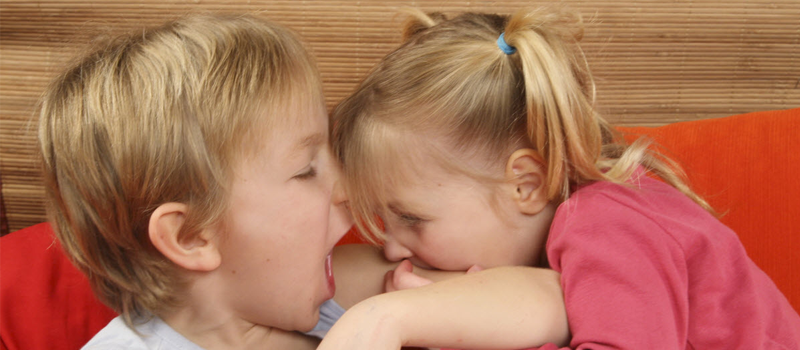
Temper Tantrums
Tantrums are loud, dramatic, and exhausting—for both the child and the adult. They usually happen when a child feels intense emotions like anger, fear, or frustration but lacks the language or emotional tools to express them. Tantrums are a typical and expected part of preschooler behaviour, especially between the ages of 2 and 4. As children develop better language and self-regulation skills, the frequency of tantrums tends to decrease. However, if tantrums are extreme, frequent, or persist beyond the typical age range, they may indicate early signs of behavioural disorders in preschoolers and should be observed closely by caregivers and educators.
Hitting
Hitting is often a defensive reaction in young children. They may hit when they feel threatened, ignored, or misunderstood, especially if they haven’t yet developed the emotional tools to express themselves in other ways. In some cases, hitting can be a learned behaviour, especially if they’ve seen aggression modeled by adults or peers. While occasional hitting is common in early childhood, frequent or intense aggression may signal early signs of behavioural disorders in preschoolers. Addressing this behaviour with calm, consistent guidance—such as helping the child use words instead of physical actions—can support healthier emotional expression and reduce incidents over time.
Talking Out of Turn
Preschoolers often speak out of turn—not out of defiance, but because they’re still learning impulse control. Talking over others usually stems from excitement, impulsivity, or a strong desire for attention. Although it can disrupt group activities or classroom flow, it’s rarely a sign of deliberate misbehavior. However, when this behaviour becomes constant and significantly affects peer interactions or learning, it may suggest early signs of behavioural disorders in preschoolers. Encouraging turn-taking, reinforcing classroom routines, and praising patience can help children gradually develop better conversational habits and self-control.
Screaming
Screaming is one of the most difficult preschooler behaviours to handle in public or group settings. Children might scream when they’re overstimulated, anxious, or desperate for attention. They may not even know how loud they are. Teaching quiet alternatives (e.g., raising a hand, using a “quiet voice”) gives them replacement behaviours.
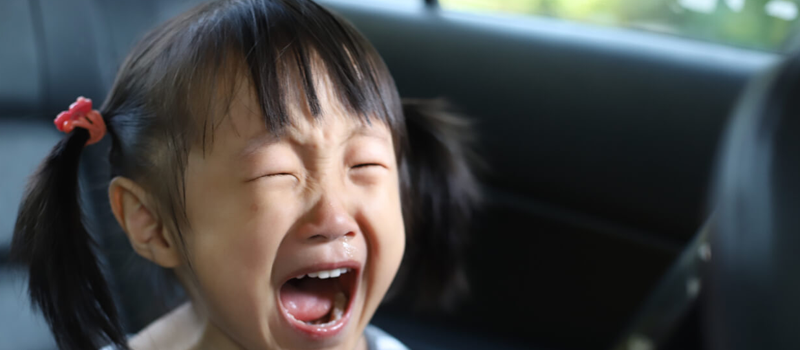
Refusing to Cooperate
When a child refuses to follow instructions, it may appear to be defiance, but it’s often a struggle for control. At this stage of development, children crave independence but lack a complete understanding of rules and responsibility. Refusal can be their way of asserting autonomy in a world that often feels dictated by adults. While occasional resistance is typical, persistent refusal to cooperate in multiple settings could indicate early signs of behavioural disorders in preschoolers. Offering limited choices—like “Do you want to clean up blocks or books first?”—can give children a sense of agency while keeping the structure adults need to maintain a supportive environment.
Throwing Toys and Other Objects
Throwing toys, books, or classroom items usually stems from emotional overwhelm, sensory needs, or testing limits. It may also be a way of communicating boredom or anger. Replace this behaviour by showing safe ways to express energy—like squeezing a stress ball or using a “calm down” corner.
Lashing Out
Sometimes, preschooler behaviour escalates into full emotional outbursts that combine several of the above behaviours—screaming, hitting, biting, or refusing to listen. This lashing out is rarely about “being bad.” It’s about emotional overload and a desperate need for connection and safety. Staying calm and emotionally available is key.
What are Some Tips for Responding to Preschooler Behaviors?
Managing preschooler behaviour takes more than discipline—it requires patience, intentional strategies, and a deep understanding of early childhood development. At this age, children aren’t trying to be difficult; they’re experiencing big emotions with brains that are still learning how to regulate them. Whether they’re throwing tantrums, refusing to listen, or acting out during group activities, how adults respond has a lasting impact on their emotional growth and behavioural patterns.
While many actions are developmentally appropriate, persistent or extreme behaviour may point to underlying challenges, including potential behavioural disorders in preschoolers. Recognizing the difference is key to offering the right kind of support.
Remain Calm
One of the most critical but difficult responses is to remain calm in the face of a preschooler’s meltdown. Children look to adults for cues on how to regulate themselves. When we meet their screaming or aggression with raised voices or anger, it only escalates the situation.
When a child is upset, their brain is in a state of dysregulation. At that moment, logic won’t work. Your calm voice, gentle tone, and relaxed body language send a message of safety. It tells the child, “You’re safe, I’m not angry, and I can help you calm down.”
Calmness also helps you think clearly, make better choices, and avoid punishing out of frustration. If needed, take a few seconds to breathe or step back before responding.
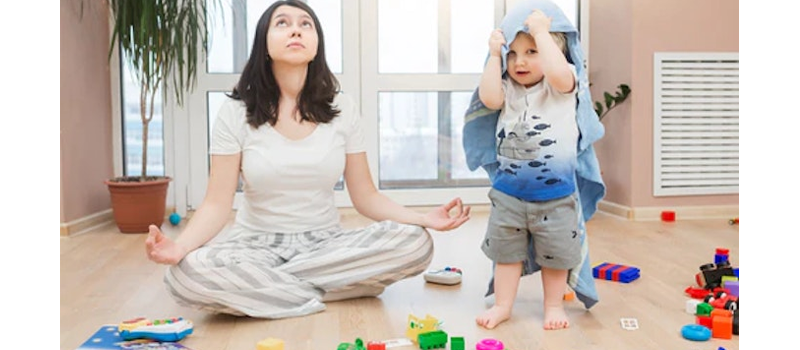
Change the Setting
Sometimes, the environment itself contributes to poor preschooler behaviour. A noisy, overstimulating classroom, lack of physical space, or too much unstructured time can increase the chance of tantrums, defiance, or impulsive acts.
If a child is acting out, quietly lead them to a calmer space—a reading corner, sensory area, or quiet table. Giving a child space away from triggers can prevent escalation.
Adjust lighting, reduce background noise, or create quiet zones in your classroom. These setting shifts not only help the dysregulated child but also promote a calmer environment for everyone.
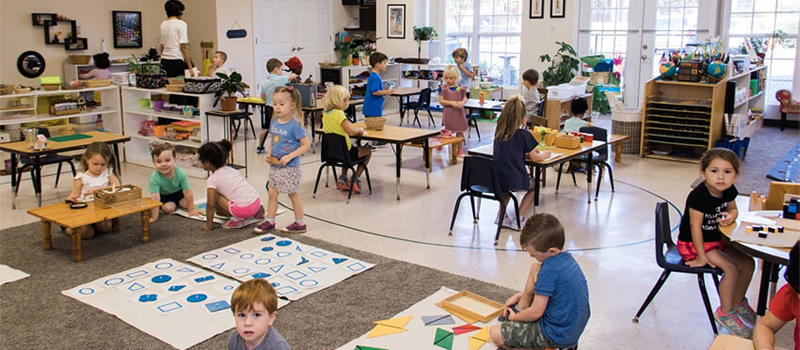
Teach Them Other Ways to Respond
Most challenging behaviours happen because young children haven’t yet learned more appropriate alternatives. When a preschooler hits, screams, or throws toys, it’s rarely intentional misbehaviour—they simply lack the tools to express what they feel or need. These reactions are often instinctual, not calculated.
Helping children build emotional vocabulary is a crucial first step. Teach them to name their feelings with simple phrases like “I’m mad,” “I’m sad,” or “I need space.” Use storytelling, puppets, and role-play activities consistently—not just during a crisis—to help them practice these responses.
If a child screams for attention, guide them to raise their hand or say, “Excuse me.” If they throw blocks in frustration, offer alternatives like stomping feet or squeezing a stress ball. In some cases, when these behaviours become extreme or persistent despite guidance, they may be early signs of behavioural disorders in preschoolers and warrant closer observation and support.
Practice Positive Reinforcement
Punishment alone does not teach. What reinforces change in preschooler behaviour is acknowledgment and encouragement of positive actions. Children thrive on attention—so offer it when they do well, not only when they misbehave.
Say things like:
- “I noticed you waited your turn—that was kind.”
- “You used your words instead of yelling. Great job!”
- “Thanks for helping clean up so quickly.”
Be specific and sincere. This builds confidence and makes the child more likely to repeat the positive behaviour.
Let Parents Know of Recurring Challenges
When behaviours become frequent, intense, or disruptive, ongoing communication with parents becomes essential. Families often have valuable insights into the child’s routines, emotional triggers, or recent life changes that may be influencing their actions.
It’s important to avoid blaming or labeling the child, especially when concerns about behavioural disorders in preschoolers arise. Instead, use collaborative, non-judgmental language like, “We’ve noticed he’s been throwing toys when frustrated—have you noticed anything similar at home?” This approach encourages open dialogue and trust. Together, parents and teachers can create a consistent support plan across home and school, which is often essential for helping children regulate behaviour more effectively and identify when professional intervention may be needed.
Keep Routines
Preschoolers thrive on predictability. Many challenging behaviours are rooted in anxiety about what’s happening next or resistance to unexpected change. Having structured, consistent routines reduces this stress.
Use visual aids like picture schedules or charts. Remind children of transitions before they happen: “In five minutes, it’s time to clean up.” When children know what to expect, they feel safe—and safe children behave better.
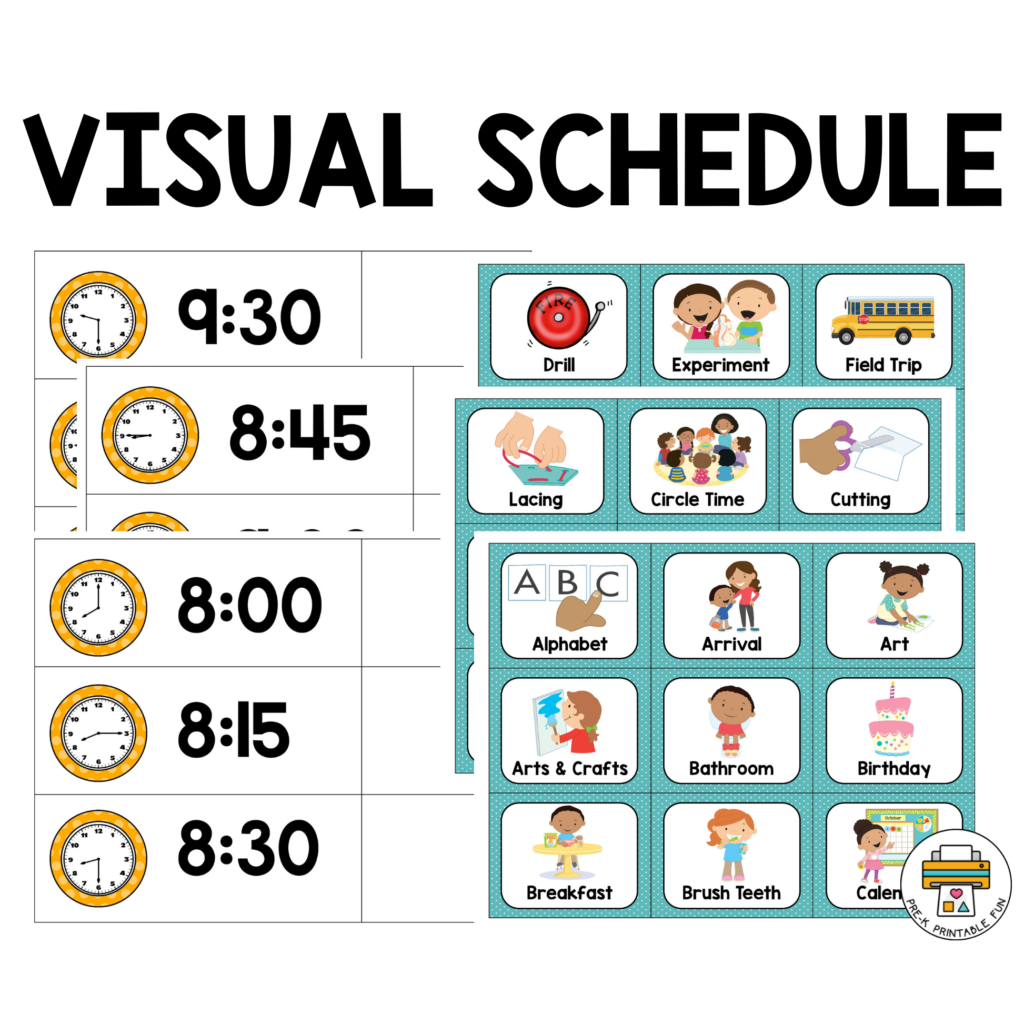
Reflect on Your Responses
Sometimes, how we react to behaviour influences whether it gets better or worse. Reflecting on your tone, consistency, and expectations helps improve your long-term strategy.
Ask yourself:
- Am I reacting emotionally or responding with intention?
- Are my expectations age-appropriate?
- Have I taught the behaviour I expect, or just assumed they know?
Self-awareness builds stronger teacher-child relationships and models the kind of emotional regulation we want children to learn.
How to Help Behavioural Disorders in Preschoolers?
Supporting children with behavioural disorders in preschoolers requires more than discipline and daily routines. These behaviours are not signs of a “bad child,” but rather reflections of emotional, cognitive, or neurological challenges that need understanding, patience, and intentional strategies. Preschoolers struggling with behavioural disorders often face difficulties with emotional regulation, impulse control, and social connection—skills that most children are only beginning to develop at this age. As educators or caregivers, how we respond can either support their growth or add to their frustration.
Be Clear with Expectations
Children with behavioural disorders benefit from structure and predictability. Clear, consistent expectations help reduce anxiety and confusion, which can trigger outbursts or defiance. Visual aids, routine charts, and direct language all contribute to better understanding.
Instead of vague instructions like “Be good,” use specific, positive phrases such as “Use walking feet indoors,” or “Raise your hand to speak.” Repetition and modeling are essential. Reinforcing expectations at the start of each day, before transitions, and during moments of calm increases the likelihood that the child will remember and follow them during more emotionally intense situations.

Incorporate Social and Emotional Skills Training
Many behavioural disorders in preschoolers are rooted in underdeveloped emotional intelligence. Children may not know how to identify their feelings, much less how to express them constructively. Directly teaching social-emotional skills in age-appropriate ways is crucial.
Use storytelling, puppet play, and feelings charts to help children name and understand emotions like frustration, jealousy, or excitement. Practice role-playing common peer scenarios: sharing toys, waiting turns, or asking for help. Repetition of these skills in a safe and supportive environment helps children internalize better responses.
Check In Regularly with Your Students
Frequent, low-pressure check-ins help children feel noticed and safe. For preschoolers with behavioural challenges, emotional build-up often precedes a meltdown. A brief check-in—asking how they feel or offering a small calming activity—can prevent escalation.
Build a habit of checking in at predictable times: after transitions, before lunch, or following group activities. Even a few minutes of connection can significantly reduce the intensity and frequency of behaviour issues in children with emotional or developmental disorders.
Promote Positive Peer-to-Peer Relationships
Children with behavioural disorders may struggle to make or keep friends. They might be impulsive, overly reactive, or socially withdrawn. Without intervention, this can lead to feelings of isolation and a reinforcement of negative behaviours.
Create opportunities for positive social interaction in structured formats: partner activities, cooperative games, or peer helper systems. Explicitly teach and model skills like listening, complimenting, and turn-taking. Encourage classmates to view each other as team members, not competitors. Fostering a classroom culture of kindness and acceptance supports all children, especially those with behavioural struggles.
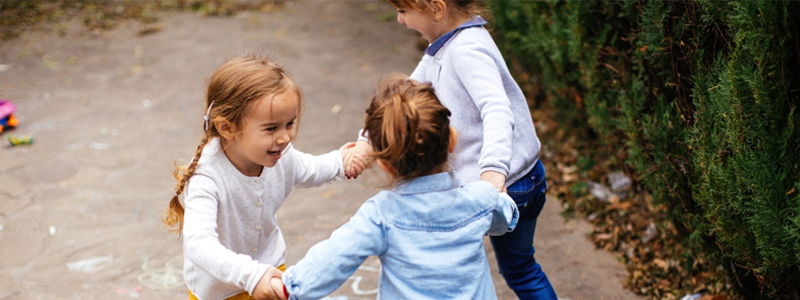
Provide Students with Creative Outlets
For some preschoolers, sitting still and talking about feelings isn’t the most effective way to process emotions. Art, music, movement, and imaginative play are powerful outlets for self-expression. Children with behavioural disorders often have difficulty verbalizing their thoughts but may express themselves more easily through creative means.
Set up daily opportunities for open-ended activities like drawing, painting, dancing, or playing music. These outlets allow children to release tension, express frustration safely, and gain confidence in their abilities outside of traditional verbal communication.
Why Early Intervention Is Critical?
Early intervention is one of the most important strategies for supporting children with Behavioural Disorders in Preschoolers. The earlier we recognize and respond to behavioural challenges, the better the outcomes for the child’s emotional, academic, and social development. Preschool-aged children are in a rapid stage of brain development. Patterns that go unaddressed at this stage can become more difficult to correct later in life. With consistent support and understanding, early behaviours can shift significantly, leading to improved long-term functioning at school and home.
Impact on Long-Term Social-Emotional Development
The preschool years are foundational for learning how to manage emotions, communicate needs, and build relationships. When children with behavioural disorders are left unsupported, they may internalize negative beliefs about themselves, such as “I’m bad,” or “No one likes me.” These feelings can lead to anxiety, social withdrawal, or aggression as they grow older.
Emotional Regulation Skills Start Early
Children with Behavioural Disorders in Preschoolers often struggle to understand and manage strong emotions. Early intervention can teach them how to identify feelings like anger or frustration and use appropriate coping tools—such as breathing, asking for help, or using a quiet space. These emotional skills will help them navigate future relationships, school expectations, and conflicts more successfully.
Preventing Long-Term Consequences
Unaddressed behavioural issues may evolve into more serious problems such as school refusal, chronic defiance, or social exclusion. When intervention begins early, the child develops healthy strategies before these patterns become entrenched. This sets the foundation for resilience, empathy, and self-control.
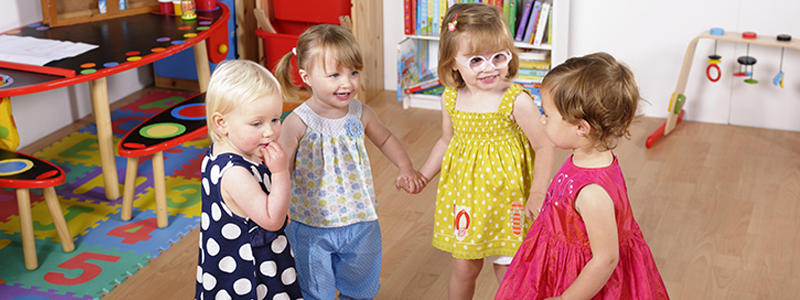
Preventing Mislabeling or Over-Disciplining
One of the greatest risks for children with Behavioural Disorders in Preschoolers is being misunderstood. Their actions—such as refusing to follow instructions, hitting, or withdrawing—are often interpreted as intentional misbehaviour. In reality, many of these behaviours are symptoms of deeper developmental or emotional challenges that require support, not punishment.
Labels Stick—But So Does Support
When a young child is repeatedly labeled as “naughty” or “disruptive,” those labels begin to shape how others treat them—and how they see themselves. This can lead to low self-esteem, social isolation, and even worse behaviour. Early intervention helps educators and caregivers shift the focus away from blame and toward understanding the root causes of behavioural difficulties. By recognizing that a child may be struggling with Behavioural Disorders in Preschoolers, adults are more likely to respond with empathy and effective strategies.
Reducing Unnecessary Discipline
Without proper context, children with behavioural challenges are often subjected to repeated discipline, suspensions, or even expulsion—sometimes before they reach kindergarten. These punitive responses do not address the underlying issue and often make things worse. When early signs of Behavioural Disorders in Preschoolers are identified and supported through developmentally appropriate interventions, the need for harsh discipline decreases, and the child has a greater chance to succeed both academically and socially.

Building Trust and Emotional Safety
For children with Behavioural Disorders in Preschoolers, emotional safety is not a luxury—it’s a necessity. Many of these children experience the world as unpredictable or overwhelming, and when their behaviour is misunderstood or punished harshly, it erodes their sense of trust in adults and the learning environment.
Trust Leads to Better Behaviour
Young children need to feel that they are understood and supported, especially when they are struggling. When a teacher or caregiver responds to difficult behaviour with patience and consistency, it sends a powerful message: “You are safe here, even when things are hard.” This trust allows children with Behavioural Disorders in Preschoolers to let down their guard, accept guidance, and begin to learn new emotional and social skills.
Consistency Builds Emotional Security
Children thrive in environments where responses to behaviour are predictable. For preschoolers with behavioural challenges, inconsistent adult reactions can heighten anxiety and worsen outbursts. Early intervention that focuses on building emotionally safe routines—using calming language, predictable schedules, and clear behavioural expectations—helps these children develop a stronger sense of stability. That emotional stability becomes the foundation for long-term behavioural improvement and healthier relationships.

Long-Term Benefits for the Child, Family, and School
Intervening early provides lasting advantages not only for the individual child but also for their family and the educational environment as a whole. When Behavioural Disorders in Preschoolers are addressed with appropriate support strategies, the ripple effects are wide-reaching and positive.
Improved Family Relationships
Families of children with Behavioural Disorders in Preschoolers often experience high levels of stress, confusion, and emotional fatigue. Early intervention offers guidance, structure, and reassurance. Parents feel empowered when they understand what their child is experiencing and how to respond effectively. As a result, parent-child relationships improve, and home life becomes more predictable and harmonious.
A More Supportive School Environment
Classrooms that support behavioural needs early foster a more inclusive and cooperative atmosphere. Teachers are better equipped to manage behaviours without relying on exclusion or punishment. Children with Behavioural Disorders in Preschoolers are more likely to remain engaged in learning, build friendships, and develop a sense of belonging when intervention begins early and consistently.
Stronger Academic and Social Foundations
Preschoolers who receive behavioural support early are more likely to succeed in future school settings. They gain self-regulation skills, improve communication, and build resilience. These foundational skills help reduce later academic struggles and behavioural escalations in elementary school and beyond. Addressing behavioural concerns early lays the groundwork for long-term success—in the classroom, at home, and in the wider community.
FAQs
1: What are common signs of behavioural disorders in preschoolers?
Common signs include frequent tantrums, aggression (like hitting or biting), extreme resistance to instructions, withdrawal from peers, impulsivity, and trouble with transitions. These behaviours go beyond occasional misbehaviour and are often intense, persistent, and disruptive across multiple settings.
2: How do I know if a child’s behaviour is just a phase or a behavioural disorder?
While some behaviours like tantrums or defiance are part of normal development, behavioural disorders in preschoolers are typically marked by frequency, intensity, and duration. If the behaviour interferes with learning, social interaction, or emotional development—and persists despite guidance—it may be time to seek professional support.
3: Why is early intervention so important for behavioural disorders in preschoolers?
Early intervention helps children develop emotional regulation, social skills, and coping strategies before negative patterns become ingrained. Supporting children early reduces long-term challenges at school and at home, and helps prevent mislabeling, isolation, or excessive discipline.
4: How can teachers support behavioural disorders in preschoolers in the classroom?
Teachers can help by setting clear expectations, offering consistent routines, teaching emotional vocabulary, and providing positive reinforcement. Tools like calm-down areas, visual schedules, and regular check-ins are also effective for managing behaviours and promoting trust.
5: Should I talk to parents if I suspect a behavioural disorder in a preschooler?
Yes. Open, respectful communication with families is key. Share observations without judgment and ask about behaviours at home. Together, you can create consistent strategies and, if needed, support the family in seeking assessment from a specialist.
Conclusion
Addressing Behavioural Disorders in Preschoolers requires more than correction—it demands understanding, consistency, and early action. When educators and families work together to identify behavioural challenges early and respond with empathy and structure, children are given the tools they need to grow emotionally, socially, and academically. Early intervention doesn’t just change the child’s classroom behaviour—it can transform their long-term development, strengthen family relationships, and create more inclusive, supportive learning environments for all.













